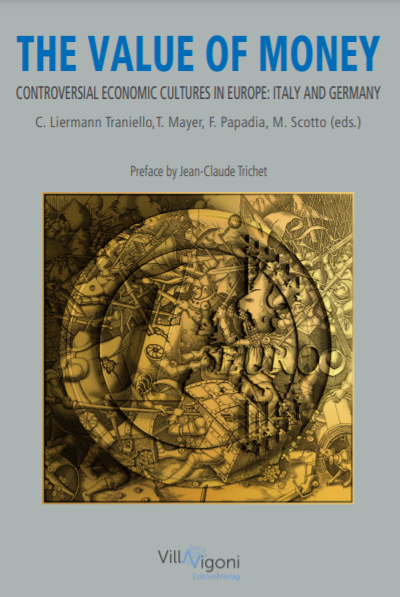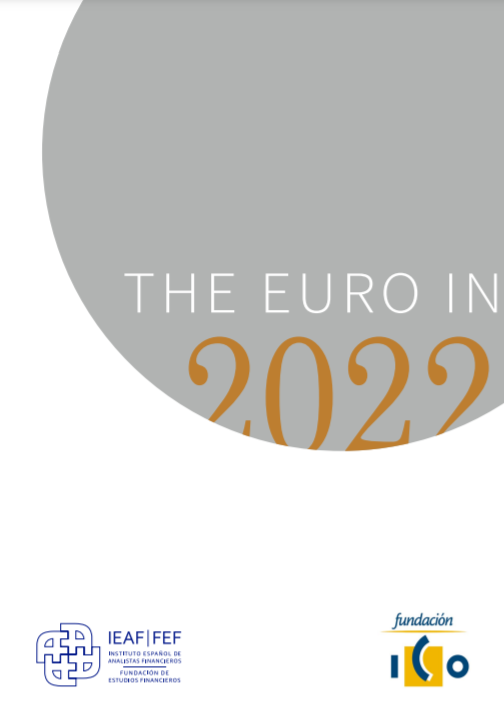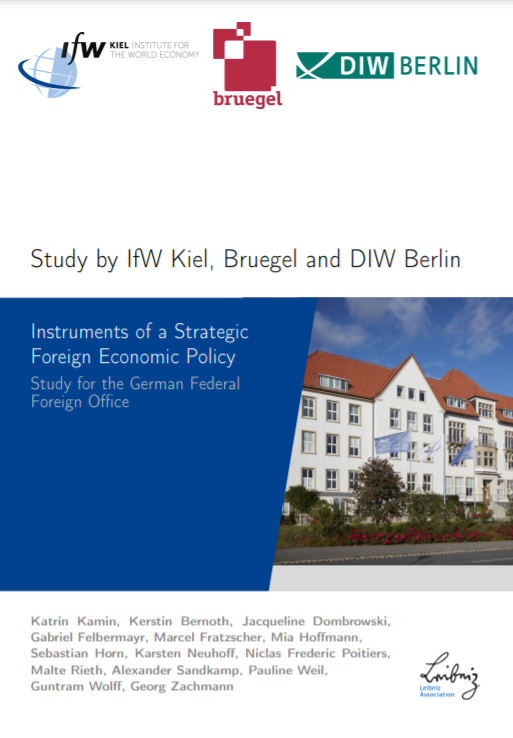External Publication
The Value of Money, Controversial Economic Cultures in Europe: Italy and Germany
A discussion of Italian and German macro-economic cultures and performances.
The full book is available at Villa Vigoni.
Villa Vigoni Editore | Verlag has published the volume “The Value of Money. Controversial Economic Cultures in Europe: Italy and Germany”, edited by Christiane Liermann Traniello (General Secretary, Villa Vigoni), Thomas Mayer (Founding Director, Flossbach von Storch Research Institute), Francesco Papadia (Fellow, Bruegel; Chair of the Selection Panel of the Hellenic Financial Stability Fund and Chair of Prime Collateralised Securities) and Matteo Scotto (Research Fellow, Villa Vigoni), with a preface by Jean-Claude Trichet (President of European Central Bank between 2003 and 2011).
Thanks to the collaboration with renowned economists and policymakers, the publication compares Italian and German macro-economic cultures and performances. When the Bretton Woods system crumbled and currencies lost their direct link to the dollar and their indirect link to gold, these two countries embarked upon strongly different monetary policies. This divergence was reflected in the evolution of the exchange rates: the value of one D-Mark increased from 170 Italian lira under Bretton Woods to 990 Italian lira at the start of European Monetary Union: an astounding devaluation of about 85 per cent for the lira! Firstly, the volume describes the German and the Italian economic and, specifically, monetary models, with major attention paid to institutions such as Deutsche Bundesbank and Banca d’Italia, analysing their development in a diachronic perspective. Secondly, these paradigms are contextualized within a broader European context, which is fundamental to reflect upon possible future scenarios. As underlined by Jean-Claude Trichet in his Preface, [the book] permits to understand better the unique historic euro monetary endeavour for three reasons. First, it integrates the multiple angles of vision on monetary union offered by eminent academics and remarkable personalities having been active in making it. Second, it explores with great pertinence the layers of the historic project, whether monetary, economic, cultural or political. Last, but not least, in organizing a dialogue between Germany and Italy, it explores two major components in the fabric of the Euro area.
The key takeaway from the book suggests that crossing “the Alpine divide”, a formula summing up the discrepancies between Italian and German macroeconomic approaches and often the product of misunderstandings within the European Union, is a complex process, yet feasible, if not even an integral part of future European unity.
List of contributors: Pierluigi Ciocca, Lorenzo Codogno, Fabio Colasanti, Federico Fubini, Daniel Gros, Otmar Issing, Harold James, Hans-Helmut Kotz, Ivo Maes, Klaus Masuch, Thomas Mayer, Stefano Micossi, Pier Carlo Padoan, Francesco Papadia, Lucio Pench, Tobias Piller, André Sapir, Gunther Schnabl, Ludger Schuknecht, Sabine Seeger, Giulio Tremonti, Gertrude Tumpel-Gugerell.
You can also watch the presentation the presentation of the book by the authors at our event earlier this year.














